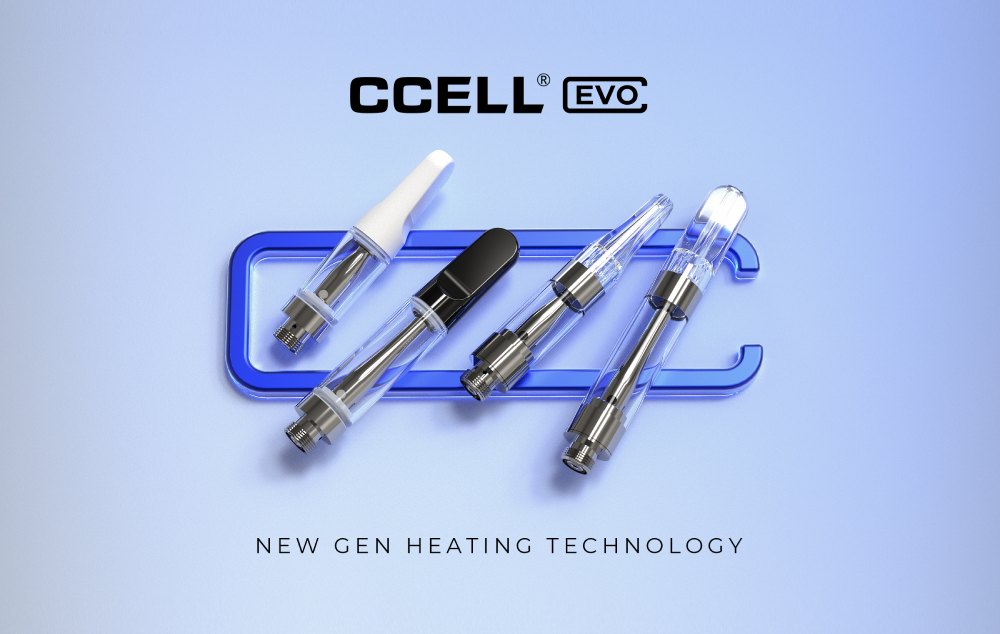CCELL®, the world's leading technology brand focused on creating trendsetting vape hardware products and advanced vaporization technology, announced today the launch of CCELL EVO, a revolutionary new heating technology succeeding its first generation ceramic heating platform that made its debut in the vaporizer industry in 2016.
The cannabis market is continually changing, as are consumer preferences. With the rapid increase in the diversity of cannabis extract types, CCELL has observed a new trend where consumers and brands are seeking a versatile solution that is compatible with more than just traditional distillates. Moreover, the vaporizer market currently sees a high demand for an excellent balance between flavor and vapor production, and CCELL EVO was engineered precisely to meet this need.

CCELL EVO is not only compatible with traditional distillates, but also with high terpene extracts that are known to be more difficult to vaporize. CCELL EVO brings unprecedented performance and an experience unmatched by any other heating platform. Follow this link to watch EVO's launch video.
"Our new heating technology was made possible through the implementation of scientifically calculated, consistent pore distribution and even heat distribution, effectively increasing thermal efficiency by 25% and atomizing a wider variety of cannabinoids", says Joe S., VP of Product at CCELL, "This breakthrough technology provides smoother and truer-to-plant flavors, larger clouds of vapor, and a higher level of safety to end users."
CCELL EVO is also crafted with environmental concerns in mind, as its ceramic cores are cast in aqueous systems that require a third less processing, resulting in 35% less greenhouse gas emissions. The new heating technology and its components have been tested by seasoned cannabis consumers in North America and have received positive feedback all around. Users have reported a 50% increase in vapor production for live resin products, and a 28% increase in vapor production for THC distillates, while flavor and taste have been enhanced by 34% and 21%, respectively.